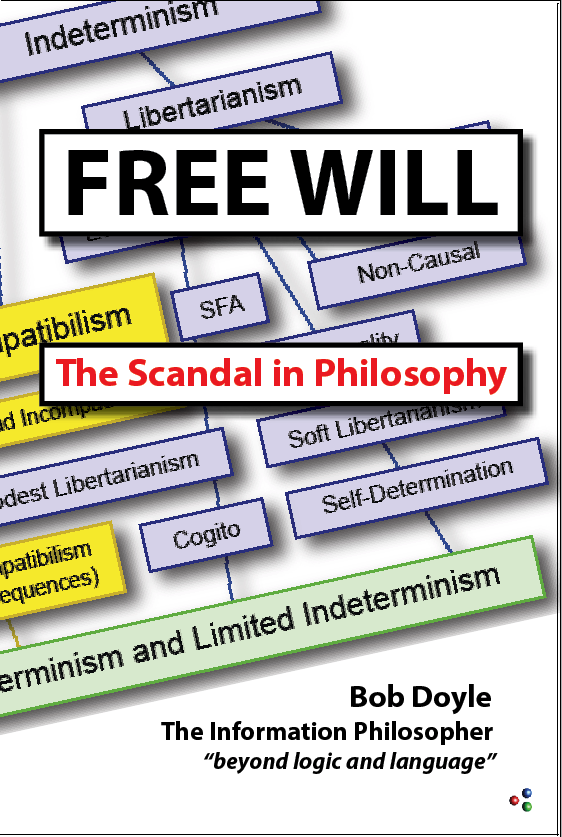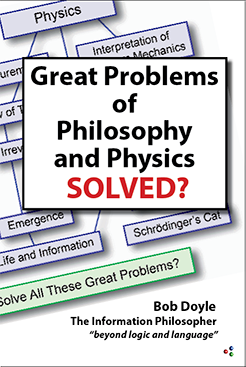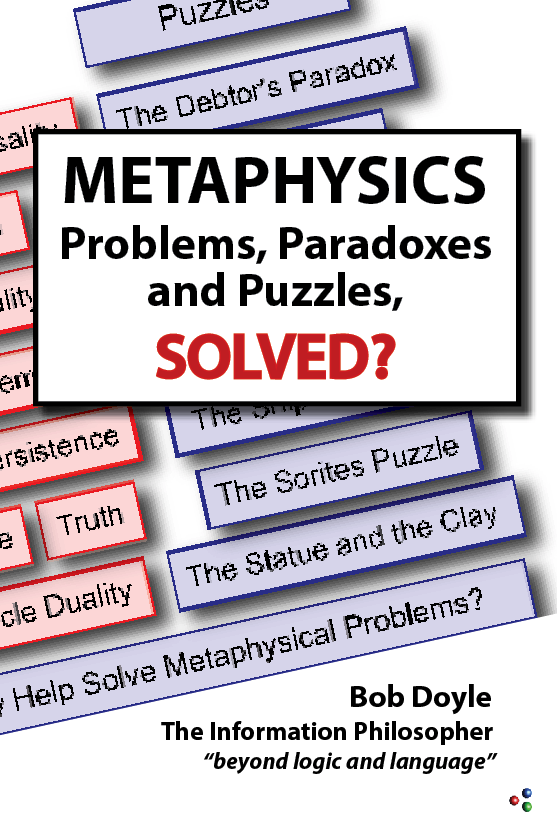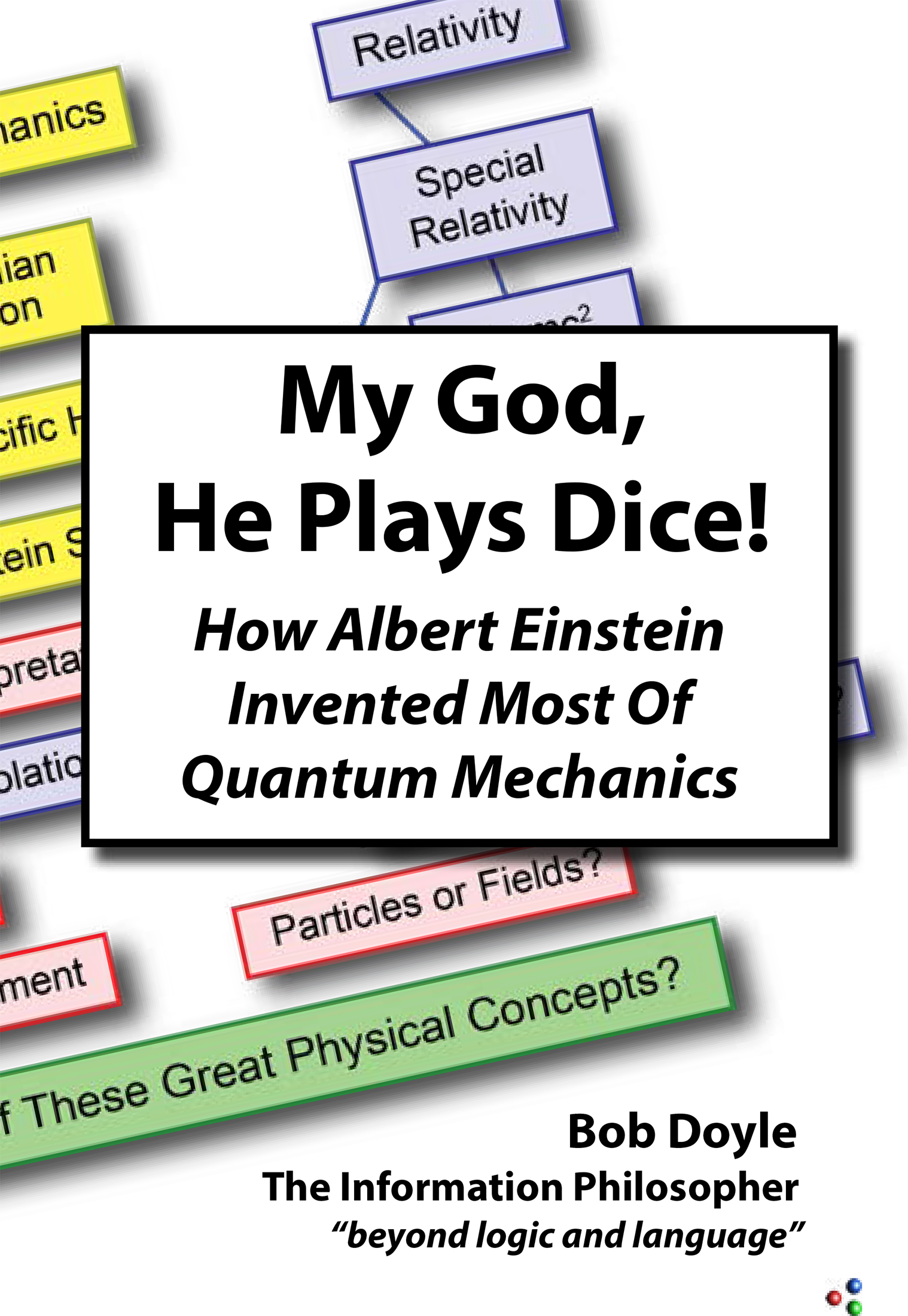This course is based on the Free Will section of the Information Philosopher website and Bob Doyle's book
Free Will: The Scandal in Philosophy.
We will work through the book to learn the Standard Argument Against Free Will, the Two-Stage Model of Free Will, and the leading philosophers on free will and their different philosophical positions.
John Searle called it something of a scandal that after all the centuries of writing about free will, we have not made very much progress. Bob Doyle surveys the centuries, recounting the many different forms of determinism that have been used to deny human freedom and responsibility. Even many defenders of free will think that it remains a metaphysical mystery, one that cannot be simply explained by basing it on other unintelligible mysteries such as quantum mechanics, or making it an equally mysterious gift of God. Information philosophy is a new philosophical methodology that goes “beyond logic and language” to the underlying information structures in the cosmos, in the world, in biological systems, and in the human mind - structures without which logic, language, and science would be impossible. According to Doyle, the more serious scandal today is that academic philosophers are convincing many young students that they are biological machines whose actions are completely determined. To end the scandal, philosophers need to teach a two-stage model of free will and creativity, one that Doyle finds in the work of a dozen philosophers and scientists going back to William James in 1884. Doyle’s Cogito model of the mind treats human beings as an essential part of a cosmic creation process that creates objective value.

 |
|






